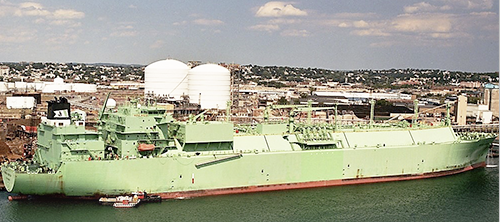Explore Other Resources
Subscribe Today!
Closing of Everett Terminal: Navigating New England's Gas Supply Challenges
The future of the Everett LNG import terminal in Massachusetts, one of the few LNG processing facilities on the east coast expected to cease operations in May 2024.
- The Massachusetts Everett LNG import terminal to lose its largest customer, the Mystic Generating Station.
- Timeline for the terminal's closure to occur in May 2024, just after Mystic Generating Station Cost-of-Service agreement expires.
- The Everett terminal has the ability of supplying 35% of peak winter gas demand and plays a pivotal role in alleviating regional gas constraints.

Source: Constellation Energy Corporation
The planned closure of the Everett LNG import terminal in May 2024 poses significant challenges for New England's gas supply, especially following the concurrent shutdown of its main customer, the Mystic Generating Station, a major fossil-fuel plant in the region with a capacity of 1,413 MW. Owned by Constellation Energy, the terminal's future is uncertain without a new gas purchaser to replace the Mystic plant. This development raises concerns about the short-term gas supply in New England and the region's ability to handle extreme weather events like last seasons winter storm Elliot or potential disruptions in the polar vortex, spilling extreme arctic air into New England.
The Everett terminal plays a key role as it's one of the few facilities on the East Coast capable of processing large LNG tankers for local use. Besides serving the Mystic Station, it connects to the Tennessee Gas Pipeline (TGP) and Algonquin Gas Transmission systems, essential for supplying gas to about 12,000 MW of gas-fired power and meeting residential and commercial gas demands. The decision to close the Mystic facility came after the Federal Energy Regulatory Commission (FERC) denied a complaint against ISO-New England's planning process for replacing the terminal. This situation underscores the complexities in maintaining a stable and reliable gas infrastructure in the region.
Contact us for more information.
